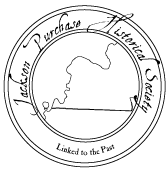Stories of Interest from the Hickman Courier from February 1, 1873
- The large warehouses of Bondurant & Drewry and J. H. Plaut & Brothers, commission and forwarding merchants, in Hickman were destroyed on the night of December 30th by fire. It was believed to have been set by arsonists as a safe located at the Bondurant & Drewry warehouse had been broken into, though it was reported that it contained nothing of value. The fire was ascertained to have originated at the Bondurant & Drewry and spread to the nearby warehouse of Plaut & Brothers. The loss was estimated between $20,000 and $25,000 for both businesses.
- Extreme dry hard freezing weather continued to stifle trade, but some cotton wagons from the counties of Dyer and Obion managed to arrive in Hickman.
- The Hickman City Council met on January 29th. The oaths of office were given to W. A. Brevard as City Clerk, George B. Prather as City Tax Collector, C. A. Holcombe as City Treasurer, and John W. Wingate as City Assessor.
- The president and directors of the Mississippi Levee Company planned to nominate Yank Westbrook as a general agent to canvass the region for additional sales in stock.
- The museum housed in the Ledwidge Building in Hickman, which consisted of “bears, monkeys, trained dogs, snakes, etc.,” was suspended and closed. While in the process of shipping the animals, the horses that led the wagon took freight and ran wildly through the streets. The released animals caused “general confusion” throughout the city.
- The city-wide election on January 31st in Hickman voted in favor of one-year terms for all city officers.
- Judge J. H. Davis of the Hickman Police Court tendered his resignation to the Governor.
- A proposition to build an Episcopal Church in Hickman was set before the public.
- Some Hickman merchants placed “extensive orders” in preparation for St. Valentine’s Day.
- Preparations for Mardi Gras continued in Hickman and city authorities extended the “freedom of city” to “permit general and uninterrupted enjoyment.”
- The venue for the grand ball to be held by the German Benevolent Society, set for the night of February 3rd, was changed from Hickman City Hall to the Fulton Academy Building due to the large number of those planning to attend.
- The Good Templars of Hickman met on January 28th and elected officers. They included John W. Cowgill, Della Cobbs, T. C. Dozier, N. L. Nelson, N. P. Harness, J. C. Wearn, Sallie Perry, J. J. Shepard, and Abe Young.
- Two African American men sick with smallpox were placed ashore at Madrid Bend but the citizens fearing spread of the disease refused them aid. Without shelter, food, or medicine the men died from exposure and neglect.
- The City Council of Columbus passed an ordinance to fund the city’s large debt by issuing ten-year bonds at 8 percent interest in five equal installments. The council also abolished the salary of the city attorney and reduced the city treasure’s salary by half. The councilmen agreed to annual income of $1.00 and eliminate the police force. The mayor threatened to veto the ordinance stating law enforcement was required in the city.
- A petition was circulated in Columbus requesting the State Legislature again reduce the city limits.
- The Mayfield Democrat claimed that Graves County had 7,000 more inhabitants than McCracken County, including Paducah.
- African American educational leaders in Paducah scheduled a meeting on February 5th to select delegates to attend a statewide convention in Louisville on February 18th to secure funds for black public schools.
- John C. Noble, Confederate veteran and former editor of the Paducah Herald, proposed that he would cultivate butternut trees in preparation for the “next American revolution or rebellion” and corner the market in dying ingredients for uniforms.
- Judge A. R. Boon denied earlier reports that he had intentions to resign from the court and join the ministry.
- Farms in McCracken County were noted as selling for $65 to $70 per acre, while farms in Ballard and Graves were at $50 to $60 an acre and farms in Fulton and Hickman for $45 to $55 an acre. Farms in Marshall and Calloway counties were listed at $20 to $25 per acre.
- The Ballard County Court was trying numerous lawsuits by property owners claiming damages allegedly caused by the Mississippi Central Railroad.
- The United Society of Shakers at South Union in Logan County informed the Bowling Green Pantagraph that during the Civil War their community of about 200 residents fed over 52,000 soldiers from both the Confederate and Union armies.
- The Dresden Democrat mentioned the business failure of Erasmus Egbert Tansil & Company with liabilities exceeding $10,000.
- Union City scheduled an election for February 17th to determine whether to reduce the amount of stock in the H. S. B & O Railroad from $100,000 to $75,000 to convert to a narrow-gauge track.
- The Paris Intelligencer published that a smallpox panic had caused alarm in the southern portion of Henry County, Tennessee.
- The citizens of Union City collected over $8,000 to build a college under the management of the Methodist Church.
- The Melrose Institute in Trenton, Tennessee was sold by W. K. Jones to G. R. McGee and W. E. Hall. The new proprietors planned to operate the school as an independent and non-sectarian institution.
- The Dyersburg Gazette reported that the president of the St. Louis & Memphis Iron Mountain Branch Railroad, John T. Scott, proposed constructing a railroad to the Mississippi to a point near Tiptonville, Tennessee with an extension to the Nashville & Northwestern Railroad from Hickman.
- The completion of the Huntingdon & Jackson Railroad was expected by the summer of 1873 at a cost of $600,000.
